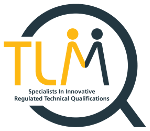Languages Policy
Introduction and general principles
Introduction and General Principles
-
The Learning Machine Ltd remains committed to reducing barriers to certification and supporting language accessibility where feasible. However, at this time, we do not offer qualifications in any language other than English.
-
We continue to comply with the Conditions of Recognition set by Ofqual and Qualifications Wales. Any future expansion of language support will be reviewed based on demand, feasibility, and regulatory approval. While we acknowledge the benefits of multilingual access, the practical implementation of additional language versions depends on economic viability and quality assurance measures.
-
The Learning Machine Ltd will collaborate with any individual or organisation interested in supporting translation efforts, provided that translations meet the necessary quality assurance and regulatory standards. However, at this time, certification issued by The Learning Machine Ltd is only available in English.
Communicating with Centres in Multiple Languages
-
The Learning Machine Ltd will only accept centres that can communicate in English. We will work proactively with centres that express interest in bilingual support, but any such initiatives will require trial phases and independent verification before full implementation.
-
In the case of Welsh and Irish, we will continue to monitor demand and regulatory requirements. Should demand increase, we will assess the feasibility of introducing translations, ensuring they meet quality assurance standards before seeking regulatory approval.
Translation of Criteria, Handbooks, and Supporting Documentation
-
The Learning Machine Ltd will consider the translation of key materials where there is sufficient demand and where quality assurance processes can be maintained. Any translations published on our website must be conducted by a native speaker of the target language with a strong command of English and relevant subject knowledge to ensure consistency with the original material.
-
If, in the future, certification is to be offered in a language other than English, it will require:
- A verified translation of assessment criteria, handbooks, and policy documents.
- Quality assurance measures are equivalent to those applied to English-language assessments.
- Regulatory approval from the appropriate authorities.
-
The Learning Machine Ltd is open to external verification of translations to ensure they accurately reflect the English versions. However, at present, English remains the definitive language for all official documents, policies, and assessments.
-
Any identified areas requiring clarification or revision will be reviewed and updated as necessary. We encourage feedback and collaboration in line with our commitment to quality and accessibility.
The Use of Welsh and Irish
The Learning Machine Ltd does not currently offer qualifications in Welsh or Irish. However, we remain fully committed to complying with the Conditions of Recognition set by Ofqual and Qualifications Wales. While we do not presently provide full language translations, we will continue to review the demand for Welsh and Irish language support in line with regulatory requirements and our broader language policy. Any future provision of qualifications in these languages will be subject to feasibility, demand, and regulatory approval
Sign language
English or Irish sign language can be used as a reasonable adjustment for candidates that have appropriate professional support as long as the centre can demonstrate that the assessment can be conveyed accurately in this manner.

